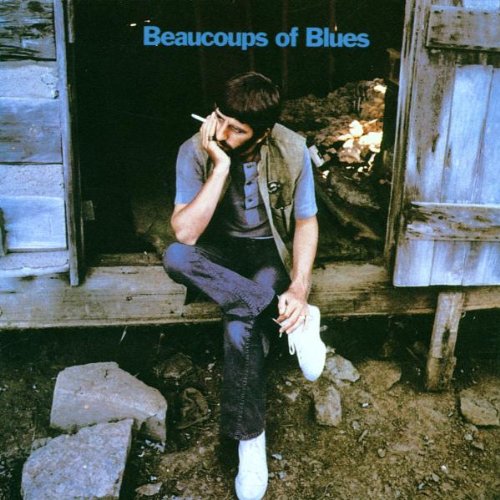
Beaucoups of Blues (1970)

1. Beaucoups of Blues 2. Love Don't Last Long 3. Fastest Growing Heartache in the West 4. Without Her 5. Woman of the Night 6. I'd Be Talking All the Time 7. $15 Draw 8. Wine, Women and Loud Happy Songs 9. I Wouldn't Have You Any Other Way 10.Loser's Lounge 11.Waiting 12.Silent Homecoming 13.Coochy Coochy 14.Nashville Jam
Released just months after the mildly confounding charm of Sentimental Journey, Ringo Starr’s second solo effort, Beaucoups of Blues, marked a significant tonal shift—at least on paper. Where the previous album was an oddly reverent trip through the Tin Pan Alley songbook, this follow-up found Starr dipping into the world of classic country & western. And unlike the lukewarm detachment that marred his first solo outing, this time the material, the musicians, and the voice all seemed—at least briefly—to align.
The concept was simple but promising: transplant Ringo to Nashville, surround him with some of the city’s most seasoned session players, and let him interpret songs steeped in heartbreak, resignation, and dusty sincerity. It shouldn’t have worked—but for a while, it very nearly does.
Crucially, Starr’s voice—a limited instrument, yes, but one long associated with underdog charm—fits the genre well. There’s no need for technical virtuosity in these songs. Country music, particularly in its late ’60s strain, often benefited from a certain vocal plainness; what mattered more was tone, phrasing, and a believable world-weariness. Ringo, with his rough-edged melancholy and conversational delivery, turns out to be surprisingly adept.
The session players, all Nashville pros of the highest caliber, do their job impeccably. The pedal steel is mournful, the rhythm section unfussy and tight, and the production captures that straight-to-tape warmth so synonymous with the era’s better country recordings. Had the tracklist been stronger—had there been a few killer cuts to elevate the mood—Beaucoups of Blues might be remembered as a minor gem in Starr’s catalogue.
But therein lies the problem: the material doesn’t always measure up. While the performances are earnest, not all the songs have staying power. There’s a strong opening stretch and a few standout moments that linger, but the record tapers off toward its end. Tracks begin to blur, and the crisp sense of genre purpose that defines the first half fades into something safer and more generic.
Perhaps in their eagerness to craft an "authentic" country album, the producers and arrangers played things too straight. The professionalism is admirable, but a little more looseness—or a few nods to Starr’s pop pedigree—might have yielded a more distinctive listen. As it stands, one is left with a curiously credible album that, while never bad, doesn’t quite justify repeated listening.
Still, there is something oddly satisfying about seeing Starr inhabit a role that neither Lennon, McCartney, nor Harrison could have credibly pulled off. For a few songs, it’s a surprisingly convincing experiment that plays to his modest strengths.
It may never have reached beyond a niche audience, but Beaucoups of Blues stands today as a curious and strangely endearing footnote—a reminder that even the most unlikely Beatle had a few stylistic surprises tucked away under that mop top.